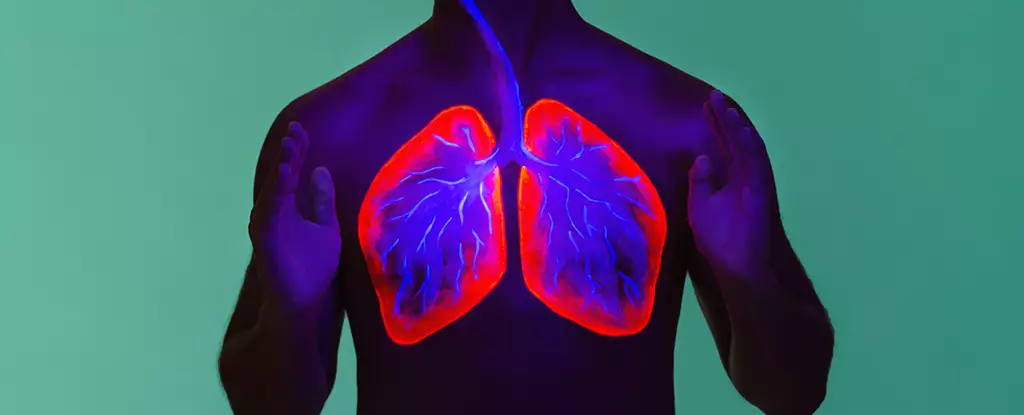Most people attribute lung cancer risk primarily to smoking and environmental pollutants, often overlooking the significant impact of nutrition. Recent groundbreaking research from the University of Florida and the University of Kentucky suggests that our dietary choices may play a crucial role in lung cancer development. Specifically, the study highlights glycogen, a polysaccharide that serves as a form of stored energy derived from glucose, as a potential catalyst for lung adenocarcinoma, the most prevalent lung cancer type globally. This revelation not only challenges our conventional perceptions of cancer risk but also stresses the urgent need for dietary awareness in public health strategies.
Insights from Groundbreaking Research
The innovative research employed spatial metabolomics, a cutting-edge technique that provides a unique perspective on metabolic processes at the tissue level. This methodological advancement allows researchers to observe how specific molecules like glycogen behave within different cellular environments. The results were striking; elevated glycogen levels were linked to increased tumor growth in mouse models, demonstrating that cancer cells could utilize this energy reserve to thrive and escape the clutches of the immune system. As molecular biologist Ramon Sun pointed out, this new lens facilitates the identification of sophisticated molecular interaction patterns, shedding light on the underlying mechanisms of disease.
Those who might question the relevance of glycogen in lung cancer should consider the implications of a diet high in carbohydrates and fats. The research indicates that mice fueled by such a diet exhibited more pronounced cancer growth compared to those on controlled or alternative diets. This correlation strongly suggests that, similar to other cancer types, dietary habits can have a profound influence on lung cancer’s progression.
The Dichotomy of Nutritional Perspective
Historically, lung cancer has not been perceived as a disease linked to dietary patterns in the same way liver or pancreatic cancers have been. This bias may be unfounded, particularly in light of recent findings. The notion that food choices — including the consumption of high-glycogen foods such as bread, pasta, and sugary snacks — might give a rise to this malignancy exacerbates the need for a paradigm shift in how we view dietary contributions to cancer risk.
Moving beyond this narrow perspective encourages a broader public health agenda. Just as smoking cessation campaigns effectively raised awareness about tobacco-related risks, fostering a greater understanding of the nutritional factors contributing to lung cancer could empower individuals to make more informed dietary choices. This could be especially pertinent as our society continues to gravitate toward high-calorie, low-nutrient foods that often characterize Western diets.
Navigating the Dietary Landscape
Integrating these findings into public health initiatives could have transformative effects. A focus on promoting healthier eating patterns is vital, as is advocating for policy changes that could improve access to nutritious foods. For instance, community programs that prioritize fruits, vegetables, and whole grains can serve as effective tools in altering consumption habits that may predispose individuals to lung cancer. Furthermore, educational campaigns tailored to raise awareness of the significant link between diet and cancer risk can foster a culture of health and well-being.
As we gain a more nuanced understanding of the interplay between diet and disease, it remains essential not to simplify this complex relationship. While the study emphasizes the role of glycogen in tumor growth, further investigations are warranted to explore how different dietary compositions may variably impact the risk of lung cancer over time.
Revisiting Health Priorities
With lung cancer accounting for a significant number of cancer-related deaths worldwide, acknowledging a possible nutritional dimension to its risk factors could represent a crucial advancement in cancer prevention strategies. Shifting the narrative surrounding dietary habits from secondary to primary prevention and raising public consciousness about these links stands as a vital step in fighting this lethal disease.
The emergence of diet as a critical area of concern in lung cancer prevention should compel health leaders, researchers, and policymakers to prioritize dietary discussions in cancer education. By doing so, we can reshape the future landscape of cancer awareness, ensuring that dietary choices are respected not just as personal decisions but as pivotal factors in public health. As we move forward, the combination of scientific inquiry and community action could illuminate new pathways for reducing lung cancer risk and enhancing overall public health outcomes.

